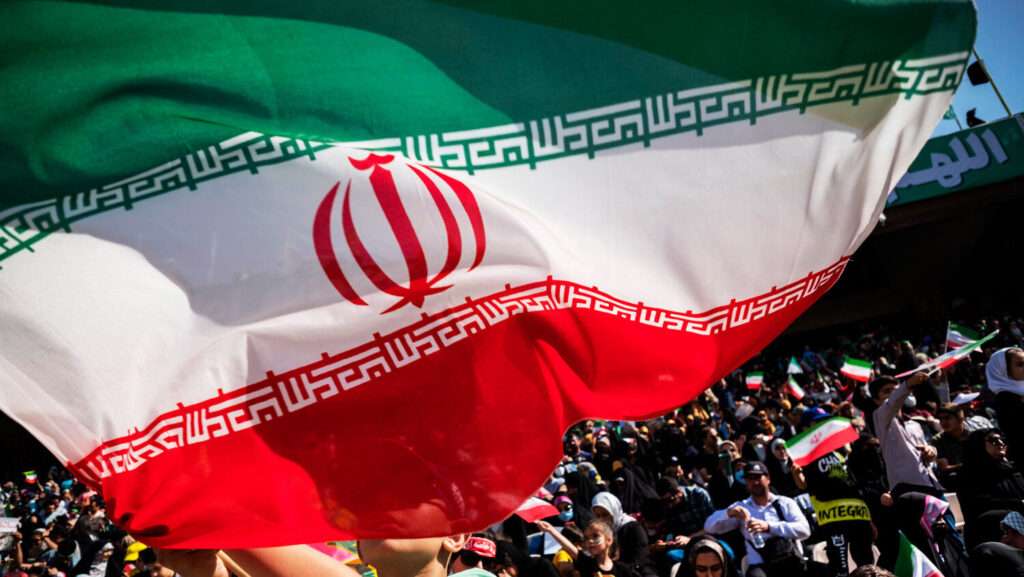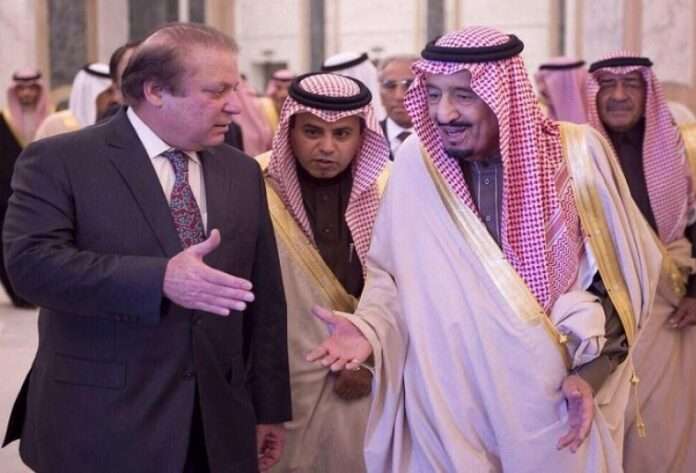Prime Minister Nawaz Sharif must be extremely relieved that Pakistan’s parliament voted unanimously on Friday 10 April not to send troops in support of Saudi Arabia’s military operation in Yemen. While Saudi Arabia will not be pleased with that outcome, the parliamentarians’ decision was a wise one.
This was a difficult decision for the Pakistan politicians to make given that they were pulled in two opposite directions on this issue. One was in the direction of Saudi Arabia, a country with which Pakistan has had a long and deep relationship, especially since the 1980s, when Riyadh provided significant funds for the Pakistan-based Mujahedeen fighting the Soviet troops in Afghanistan. The other direction was Iran, a neighbour with which Pakistan has had an ambivalent relationship over the years but which has the potential of becoming more productive in the future. Let’s look more closely at what were the issues involved in this parliamentary decision and why it was such a serious dilemma for Pakistan.
The Saudi Pull
Although the parliamentary vote was unanimous, this does not mean that it was an easy decision for the parliamentarians to take. On the contrary, it was one that would have been wrenching to make. But at the end of the day Pakistan’s national interests trumped the country’s deep psychological and religious attachments to Saudi Arabia.
When Saudi Arabia requested Pakistani military aircraft, warships and troops to support its military operations in Yemen, which began in late March, it was almost certain that Pakistan would positively respond to Riyadh’s call for help. This is despite the fact that the Pakistan army is already heavily committed in its military operations in different areas of FATA against the Taliban and its fellow ideological travellers. And although sending military assets to Saudi Arabia would have stretched the Pakistan military, in principle the Pakistan government probably wanted to help a fellow Islamic country. Prime Minister Nawaz Sharif certainly has not forgotten what Saudi Arabia has done for Pakistan over the years, including last year’s $1.5 billion bail out to prevent Pakistan from facing a financial crisis. And, of course, on a personal note, Prime Minister Sharif would always be grateful to Saudi Arabia for providing him a home for almost a decade following his ouster in General Musharraf’s October 1999 coup d’état.
However, there were also many factors which pulled Pakistan into the opposite direction. The most important one would have been the fear of getting involved in a far-away war in which Pakistan’s national interests were not directly threatened. Not only does Saudi Arabia want to reverse the Houthis’ military gains, but it has stated that “Operation Decisive Storm” would continue until “Yemen is stable and safe” and Yemen President Abed Rabbo Hadi is returned to power. This is setting the bar very high indeed and, accordingly, many fear that Saudi Arabia’s and its allies’ involvement in Yemen could turn into a quagmire for them. One should not forget how Egypt’s involvement in Yemen in the 1960s went badly wrong and President Nasser had to recall the troops home after four years of fruitless conflict. This disastrous episode would not have been lost on Pakistan’s parliamentarians. The last thing Pakistan would want to see is the return of dead Pakistani soldiers for what would effectively be an open-ended conflict.
Another factor which would have weighed heavily on the parliamentarians’ minds during the five days of debate on this issue is the possible domestic repercussions of Pakistan’s military involvement in what has effectively become a civil war. While there are many players involved in the Yemen conflict, the Houthis, who adhere to the Zaidi School of Shia Islam, are the principal protagonists in this conflict. Had Pakistan decided to intervene in the conflict on the side of Saudi Arabia, a predominantly Sunni country, it would have looked increasingly like a Sunni-Shia conflict. And while Saudi Arabia does not wish to portray it as such, Pakistani Shias and Sunni extremist groups would have seen it through this sectarian prism. And this would have been bad news for Pakistan. Shias have already been the target of horrendous attacks over recent years, especially in Baluchistan, and, accordingly, Pakistan’s involvement in that conflict would have encouraged extremist Sunni groups, such as Lashkar-e-Jhangvi, to execute more terrorist attacks against the Shia community.
As noted above, while the Houthis are considered Shias, their religious practices and beliefs put them closer to the Sunnis. Nevertheless, Saudi Arabia has portrayed them as a fifth column of Iran, despite the fact that Teheran has actually shown little interest in the Houthis. However, by intervening directly into Yemen’s civil war and targeting the Houthis, Saudi Arabia will almost inevitably push the Houthis into Iran’s arms and thus widen the Yemen instability to involve other external players. Iran’s decision to dispatch two warships to the Gulf of Aden will not assist matters and only confirm to sceptics that Iran is not to be trusted.
Of course, Iran is not the only external player in this conflict, in addition to the UAE and Egypt, the US has been involved, providing intelligence and setting up a coordination centre in Saudi Arabia. The Americans have also conducted the aerial refuelling of Emirati F-16s and Saudi F-15s involved in the air campaign and they have delivered weapons. In other words, Washington is intimately involved in this civil war which has all the ingredients to turn into a regional conflict down the road.

The Iran Factor
This is where the Yemen situation needs to be assessed against the backdrop of the on-going nuclear negotiations between Iran, on the one hand, and the P5+1, on the other hand. Riyadh has been very clear about these negotiations: it never supported them, fearing that these would only delay the time when Iran would have nuclear weapons and the outcome would effectively confirm Iran as the dominant power in the region. And while the Saudi leaders made some lukewarm supporting noises about the recent agreement on the framework to move the talks forward, Riyadh remains fundamentally unhappy about the direction these talks are taking. The Saudi leaders (and the Israelis for that matter) cannot understand why the P5+1 have not linked the nuclear negotiations with Iran’s activities in the region, particularly in Syria, Iraq, Lebanon and Gaza. Accordingly, Saudi Arabia, which has clearly played up Iran’s support of the Houthis, is hoping that the US, France, the UK and Germany will take a tougher line against Iran in the last stage of the negotiations. But I suspect that Teheran will avoid doing anything, including enflaming the situation in Yemen, which would undermine the gains Iran has made so far in Geneva.
But while Saudi Arabia would like to see the nuclear negotiations fail, Pakistan on the other hand wants to see them succeed. There are two reasons for this. First, Pakistan does not want to have another nuclear-armed state as a neighbour, certainly not in the near term. A successful conclusion to these talks would delay such an outcome. Second, a nuclear deal between Iran and the P5+1 would mean that the economic and financial sanctions imposed on Iran would be lifted. This would be good news for Pakistan’s economic relations with Iran. Particularly important is that this would lift the restriction on potential US loans to Pakistan for the construction of the 500-mile gas pipeline to the Iran border which would link up with the Iranian pipeline already built. Iranian gas would help alleviate Pakistan’s significant energy shortage. Accordingly, the parliamentarians would have taken these factors into account when considering their decision on the Saudi request. They would have been cognisant of the fact that providing military assistance to Saudi Arabia, thus effectively expanding the Yemen conflict, would have added an element of uncertainty to the nuclear negotiations.
Lastly, Pakistan did not want to add fuel to an already tense situation on the Baluchistan-Iran border, where for the last few months there have been sporadic skirmishes between the two countries’ border guards. Moreover, Iran could always raise the stakes by providing more assistance to some of the Baluch secessionist groups roaming in Baluchistan. The last thing the Pakistan army would want to have to deal with is another militant front while it has its hands full combating the Taliban in FATA.
Now what?
Saudi Arabia will have been disappointed with Pakistan’s decision not to provide military support for its campaign in Yemen. Almost certainly, this will have an impact on future Saudi assistance to Pakistan. However, in order to soften the disappointment the parliamentarians did express “unequivocal support for the Kingdom of Saudi Arabia” and that it would “stand shoulder to shoulder with Saudi Arabia” in case of any violation of the latter’s territorial integrity. Unfortunately, what sort of assistance this would mean is unclear.
Meanwhile, the big winner in the Yemen conflict is al-Qaeda in the Arabian Peninsula (AQAP). The Houthis were its fiercest opponent but with the Saudis relentlessly pounding them, AQAP has been able to gain control of more territory. This is bad news for the West given that this group is actively plotting attacks, as we saw with the deadly Charlie Hebdo terrorist killings. Other groups have gained ground as well, including tribal groups and DAESH (also known as Islamic State) which is already lapping at Saudi Arabia’s northern border. Compounding the military situation is the humanitarian disaster that is now unfolding as a result of the fighting and Saudi-led bombings.
Given the assessment above, the Pakistan parliamentarians’ decision was the correct one to take. Pakistan can play a constructive role at the United Nations and in the OIC in helping broker, first, a ceasefire, and, second, a long-term peace accord among the various players in the unfolding Yemen tragedy. And the sooner this can be achieved, the better. As we all know, once wars begin, they take a life of their own and the repercussions can have unexpected consequences. Let’s hope for the stability of the whole region that there will not be any such negative blowback for Saudi Arabia.




